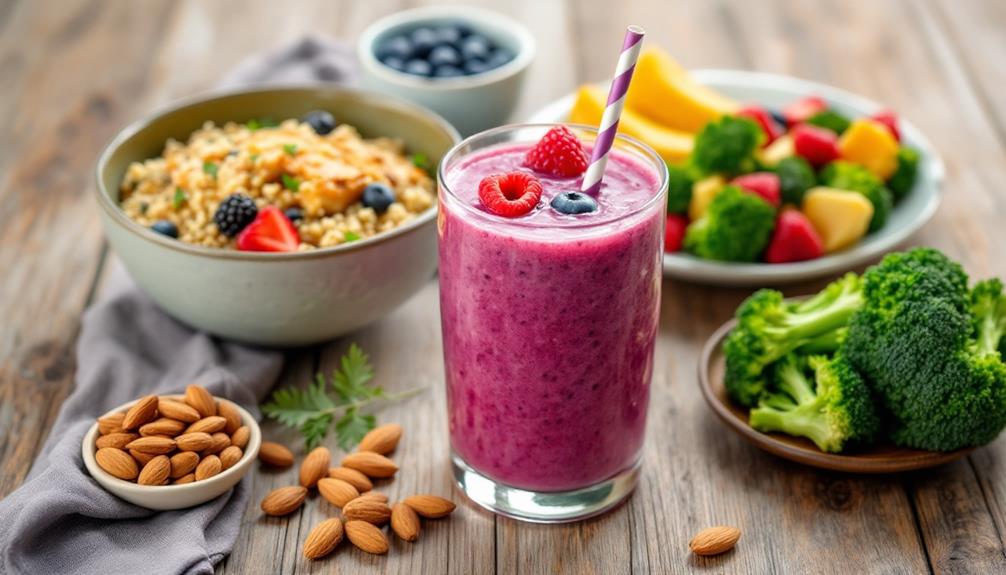When it comes to fast muscle recovery, focusing on the right foods can make a significant difference. First, Greek yogurt is packed with protein and probiotics, perfect for muscle repair. Next, quinoa provides crucial amino acids and complex carbs for energy. Salmon is another great option, rich in protein and omega-3 fatty acids that help reduce inflammation. Don't overlook spinach, which is loaded with vitamins and minerals that support muscle function. Finally, sweet potatoes offer essential carbohydrates for replenishing glycogen stores. Each of these foods plays a crucial role—keep exploring to discover even more recovery strategies.
Core Insight
- Greek yogurt provides protein and probiotics, aiding muscle repair and gut health after workouts.
- Quinoa offers a complete amino acid profile and complex carbohydrates, essential for energy and recovery.
- Salmon is rich in protein and omega-3 fatty acids, helping reduce inflammation and support muscle recovery.
- Spinach contains essential vitamins and minerals that contribute to muscle function and overall recovery.
- Sweet potatoes provide carbohydrates for glycogen replenishment and are high in fiber, promoting digestive health.
Greek Yogurt
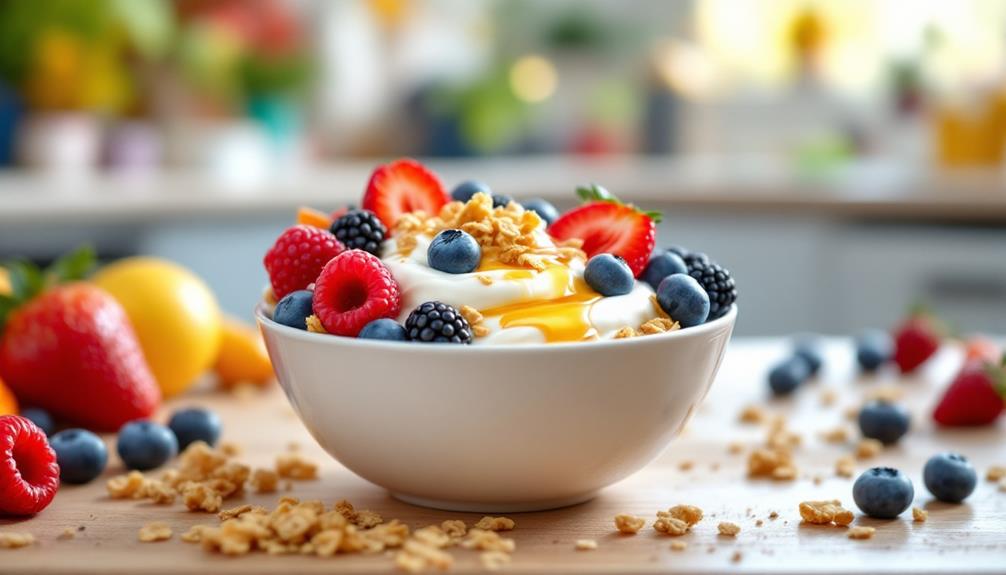
Greek yogurt is a popular choice for fitness lovers because of its creamy texture and rich flavor. It is loaded with protein, which helps repair and build muscle after tough workouts. When you eat Greek yogurt, you get not only protein but also important nutrients like calcium and probiotics. These probiotics are good for your gut health and can help you recover better.
You can easily add Greek yogurt to your diet. Try mixing it into smoothies or enjoying it with fruits and nuts. It also works well as a base for dressings or dips. Including Greek yogurt in your meals after exercising can help you recover faster and fuel your body properly. Your muscles will appreciate this tasty and nutritious option.
Quinoa
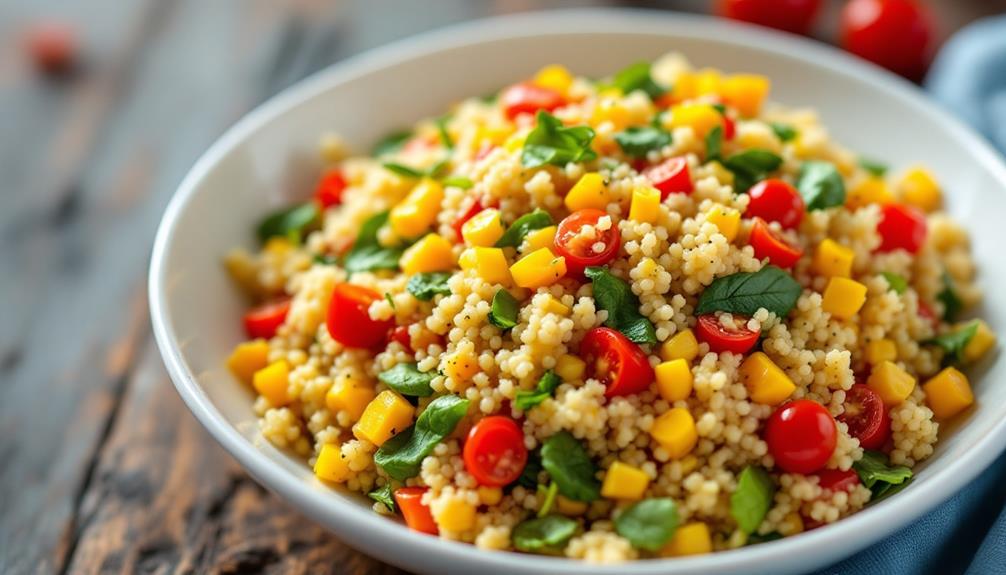
Quinoa is a great food to include in your recovery diet. It is high in protein and essential amino acids, making it perfect for repairing muscle tissue. Plus, it's gluten-free, so it fits well into many different diets. Like unflavored vegan protein, quinoa contains a complete amino acid profile, which is important for muscle repair and growth.
You can easily use quinoa as a side dish or mix it into salads for a filling meal. Its complex carbohydrates give you the energy needed to recover after tough workouts. Quinoa is also packed with vitamins and minerals that support overall health.
To get the most out of quinoa, try pairing it with vegetables or lean proteins. This helps your body absorb nutrients better and speeds up recovery. Make quinoa a regular part of your post-workout meals, and you should notice a difference in how quickly you recover.
Salmon
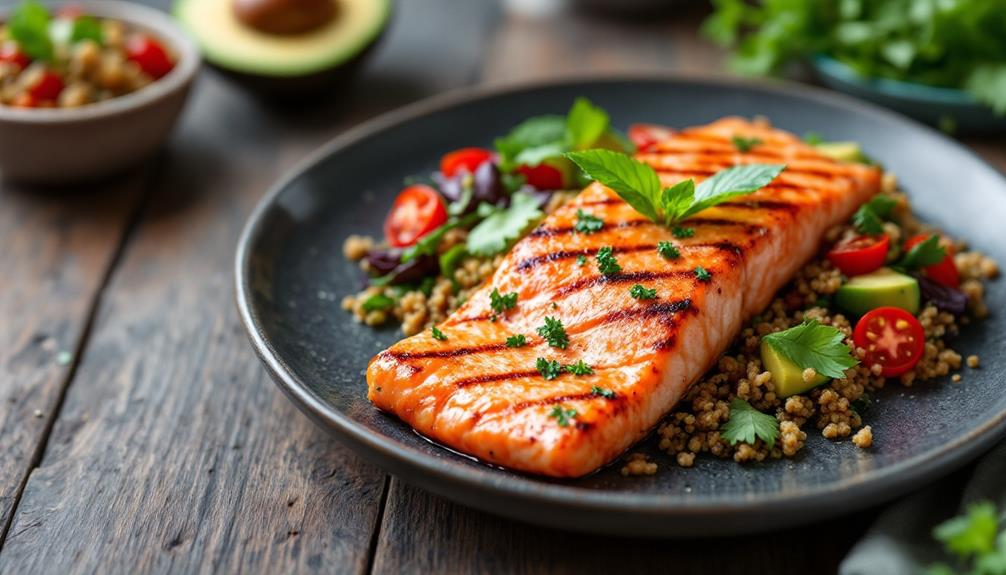
Eating salmon after your workout can help your muscles recover and grow. Salmon is packed with protein, which provides the building blocks your body needs for repair. It also contains omega-3 fatty acids that can help reduce inflammation and support recovery. A good serving size is about 3-4 ounces, and you can prepare it in different ways like grilling, baking, or smoking. Pair salmon with whole grains or vegetables for a balanced meal. By adding salmon to your post-workout meals, you're giving your body the fuel it needs after exercise.
Spinach
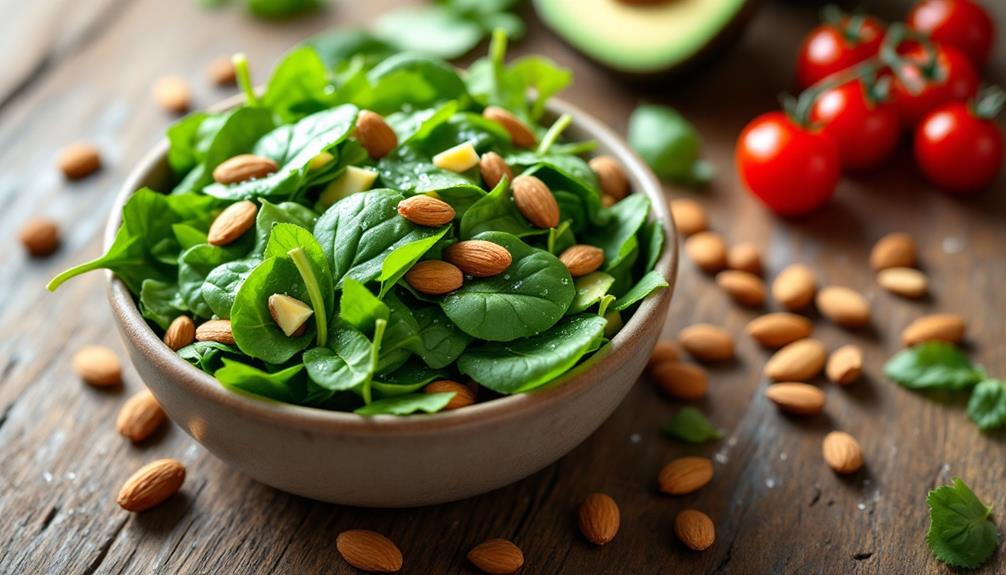
Spinach is great for muscle recovery. It has many nutrients that help your body heal after a workout. It is rich in vitamins A, C, and K, which can reduce inflammation and aid tissue repair. The antioxidants in spinach also help fight oxidative stress that can happen after intense exercise. Just like EAA powders, spinach provides essential amino acids that support muscle repair and growth. This makes it a good addition to any recovery routine.
Spinach is also high in magnesium and iron, which are important for muscle function and energy. Adding spinach to your meals can boost your recovery.
You can enjoy spinach in many ways—toss it in a salad, blend it into a smoothie, or sauté it as a side dish. Its versatility makes it easy to include in your diet. Eating spinach after workouts can help you recover faster and perform better.
Sweet Potatoes
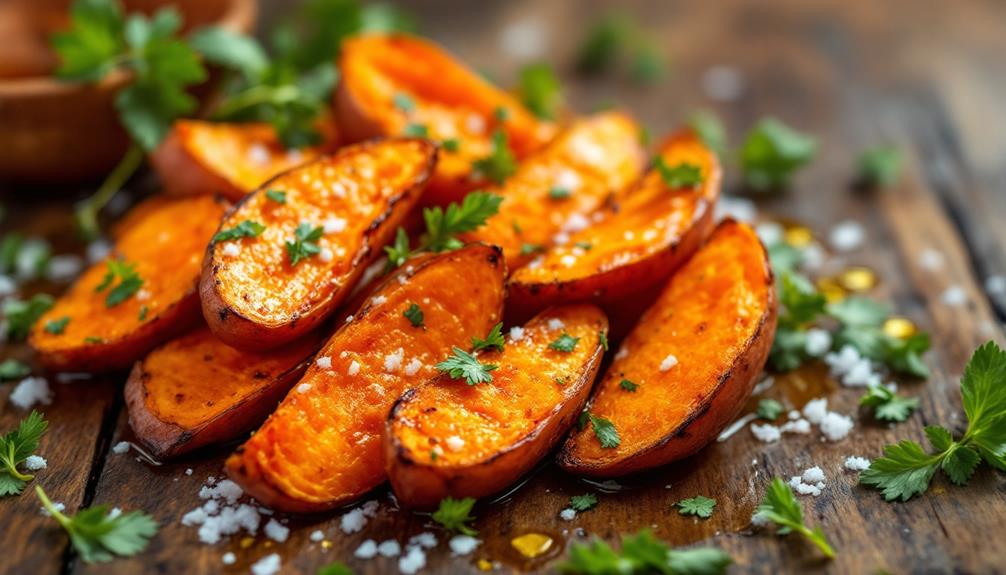
Sweet potatoes are great for muscle recovery. They are packed with nutrients that help your body heal. Their rich carbohydrate content helps refill your glycogen stores after tough workouts, which is important for restoring energy and improving performance. If you want to stick to a balanced diet, sweet potatoes are a good alternative to low-calorie protein bars when paired with lean protein.
Sweet potatoes are also full of vitamins A and C, which boost your immune system and help protect your body from illness as you recover. Plus, their high fiber content supports digestive health, so you can absorb all those important nutrients.
You can enjoy sweet potatoes by baking, steaming, or mashing them. They also work well in smoothies or salads for an extra nutritious kick. Adding sweet potatoes to your post-workout meals will give you the energy and nutrients you need to recover and come back stronger.
Frequently Asked Questions
How Much Protein Is Needed for Optimal Muscle Recovery?
You'll need around 20-30 grams of protein after workouts for peak muscle recovery. This amount helps repair damaged muscle fibers and promotes growth, ensuring you feel stronger and ready for your next training session.
Can I Combine These Foods for Better Results?
You can combine these foods to boost recovery. Mixing proteins, carbs, and healthy fats creates a balanced meal that enhances nutrient absorption, giving your muscles the support they need to repair faster and stronger.
What Time of Day Is Best to Consume These Foods?
You'll want to consume these foods within 30 minutes after your workout for peak recovery. Eating them later in the day's beneficial too, but post-exercise is when your muscles really need that nutrition boost.
Are There Alternatives for Those With Dietary Restrictions?
Absolutely, there are plenty of alternatives for those with dietary restrictions. You can focus on plant-based proteins, gluten-free grains, or dairy substitutes. Just make sure you're still getting the essential nutrients your body needs to recover.
How Soon After a Workout Should I Eat These Foods?
You should eat within 30 minutes to two hours after your workout. This window helps maximize nutrient absorption, replenishes energy stores, and kickstarts muscle repair, ensuring you recover effectively and prepare for your next session.

